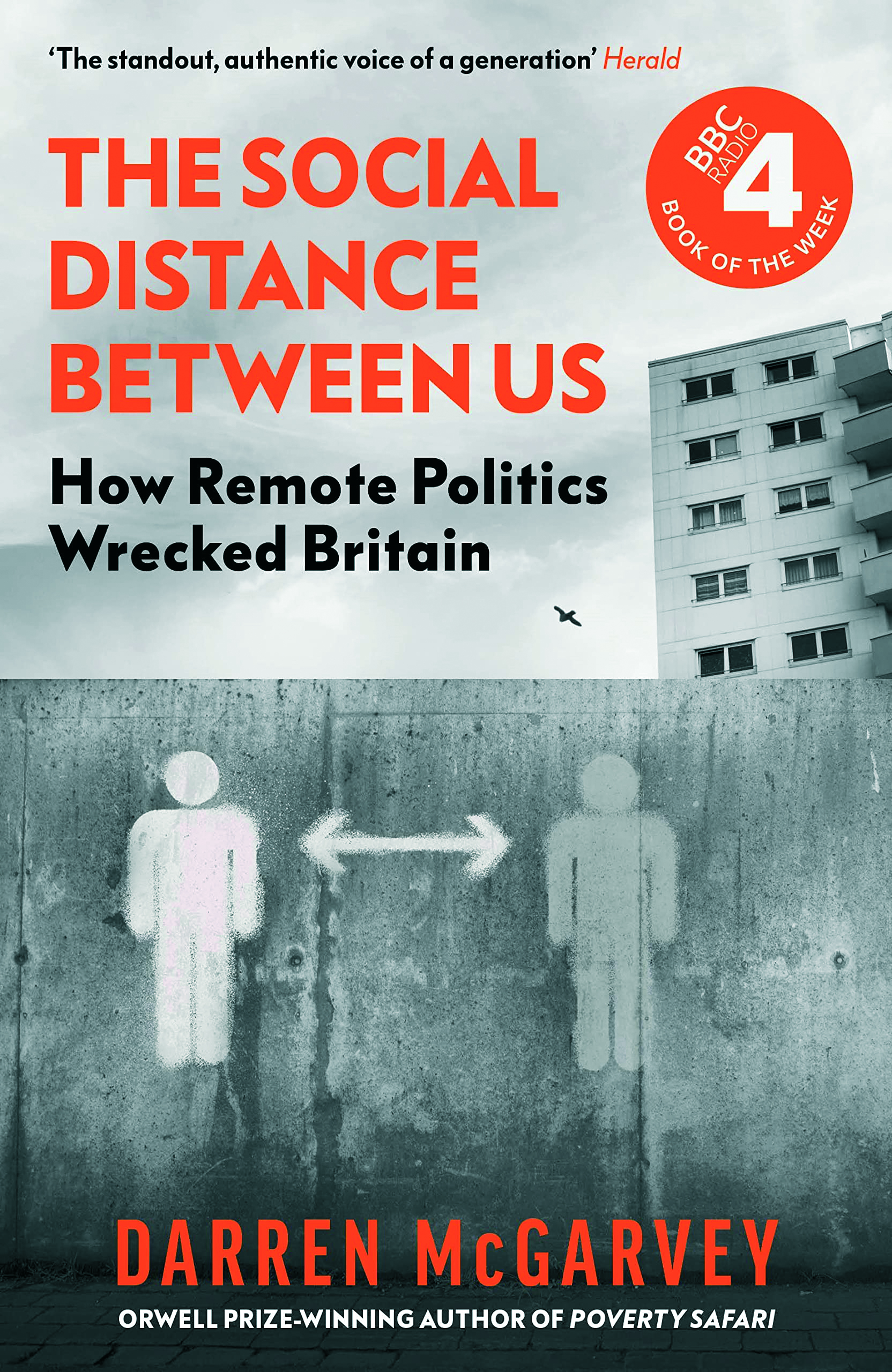
All of author and documentary-maker Darren McGarvey’s work is a provocation, and I am easily provoked. So I consume it in a state halfway between admiration and irritation. Admirritation, if you like. But here’s the thing: I always do consume it. Often, the parts that irritate me most are the ones that keep me consuming, just as the points I take greatest issue with are the ones I find myself thinking about long after I am done.
This is McGarvey’s USP: the ability to shake his audience out of its complacency. It is a skill he first displayed in his Orwell Prize-winning debut, 2017’s Poverty Safari, but has sharpened since. His latest book, The Social Distance Between Us: How Remote Politics Wrecked Britain, is an analysis of class and the role it plays in creating and sustaining inequality. In successive chapters, McGarvey looks at education, employment, prisons, addiction and much more, charting in rigorous and rage-inducing detail the way the system operates to further disadvantage those who already have the least.
McGarvey was born into hardship. His analysis and credibility are rooted in his own experiences and his “proximity” to the people he interviews. His affinity with those on the breadline never wavers; his anger at the indignities inflicted on them never flags. It is the gratuitous humiliations that stand out. One woman called to a meeting with the DWP is asked: “Who pays for your children?” Confused, she answers: “I do, and my partner contributes.” “No,” the staff member says. “The government does.”
McGarvey shows how the pandemic exposed the faultline between the haves and have-nots; how people with gardens stood in judgement over those venturing out to public parks. He is blistering, too, on the way furlough payments laid bare the contempt at the heart of the benefits system. For years, the “feckless” poor have been forced to jump through hoops to prove their worthiness for state
handouts. The trusted middle classes, on the other hand, were given theirs, no questions asked.
It is in his castigation of middle-class people that McGarvey is most challenging. His dismissal of their woolly liberalism, and their distance from the grinding reality of poverty, is full of sweeping generalisations. But maybe that’s the point. Working-class people face sweeping generalisations all the time. Maybe he is holding a mirror up to middle-class prejudices, and we just don’t like our own reflection.
What makes McGarvey’s snideness tolerable is that it is mostly theoretical. When he encounters members of those groups he affects to despise – people like landowner Dee Ward – he finds them likeable, without relinquishing his distaste for their privilege. And he is aware of his own contradictions.









